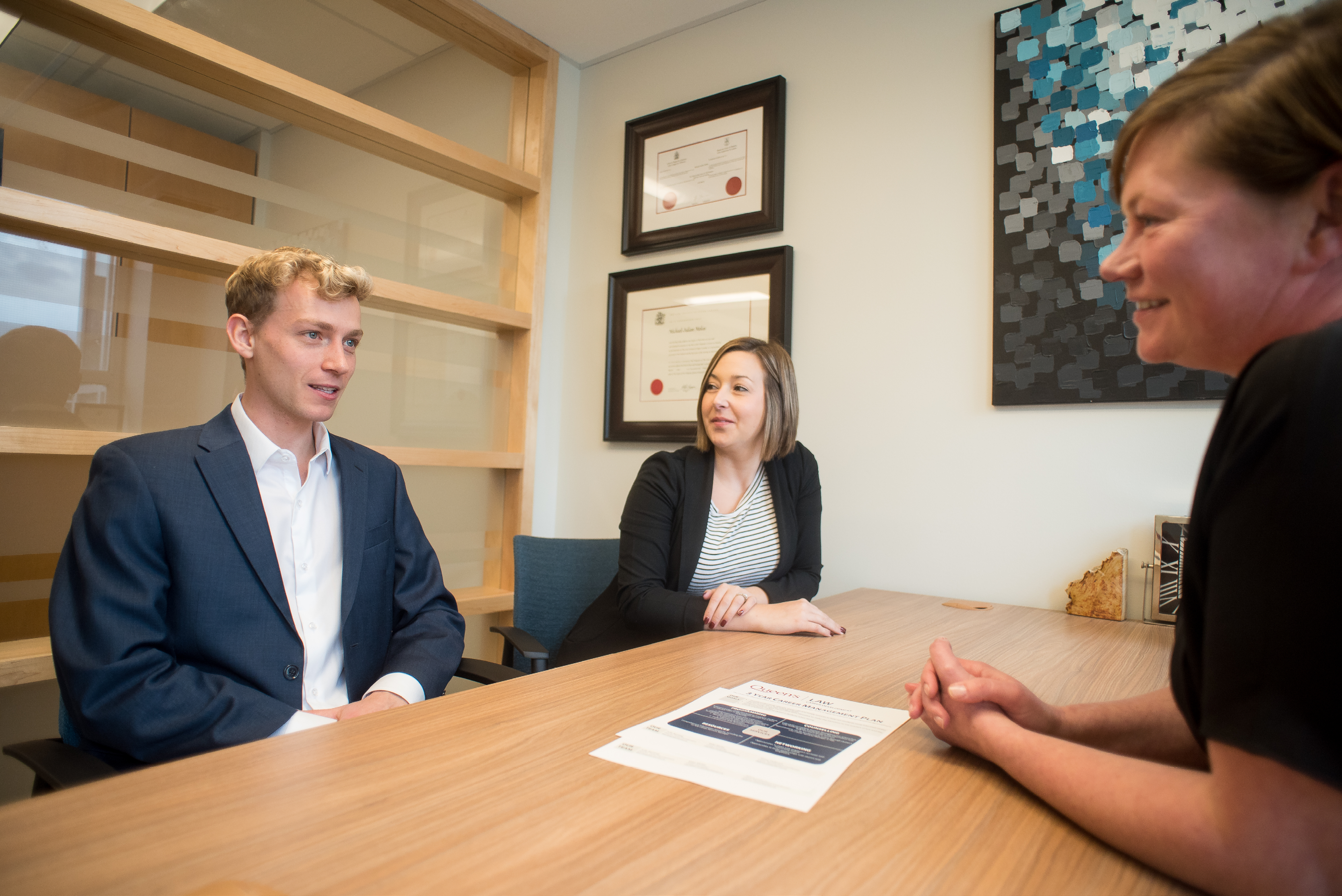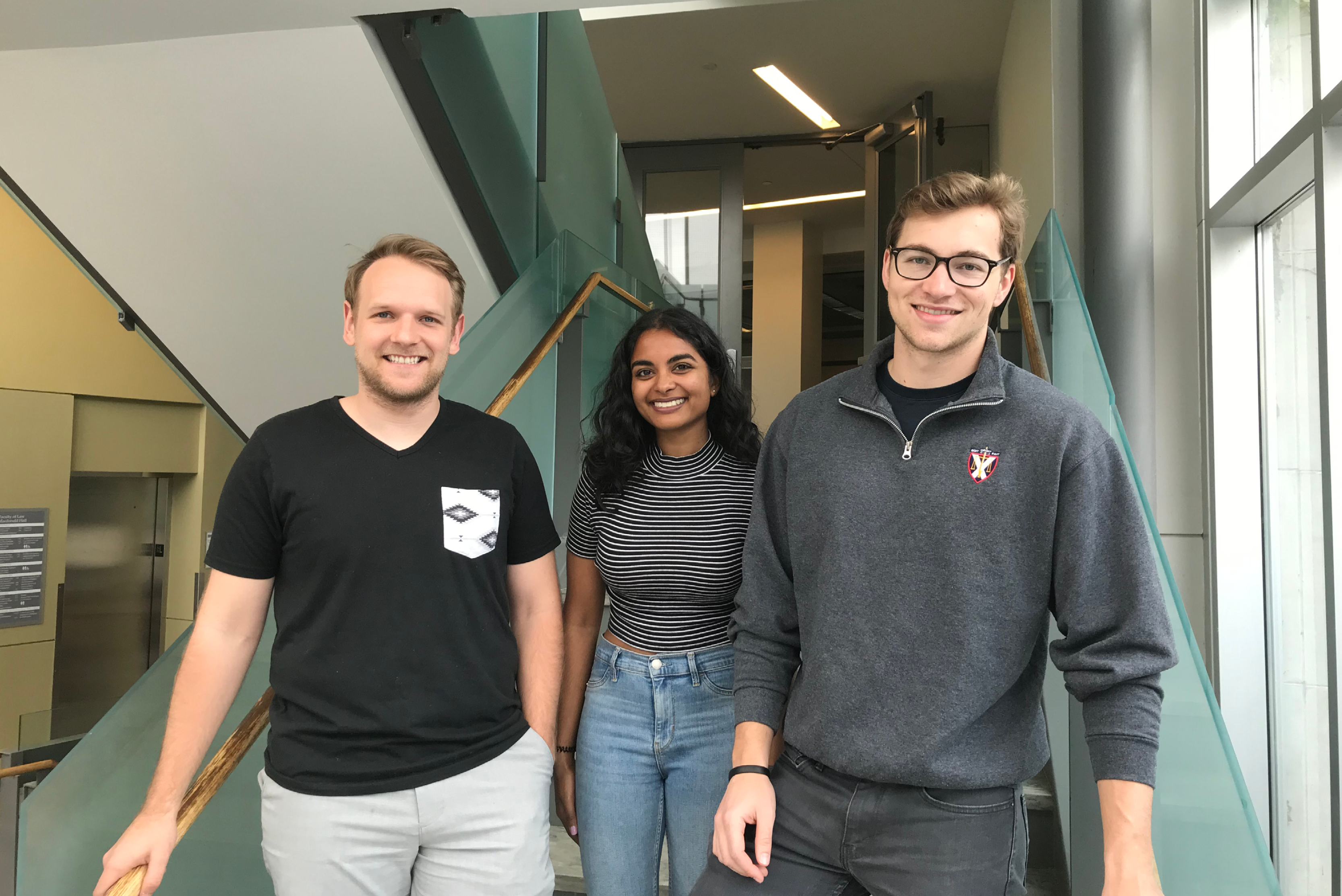Why hire a Queen's Law student?
They are leaders.
Queen’s Law empowers the next generation of leaders in law and public service by offering an unparalleled legal education delivered by world-leading experts, and championing free and respectful inquiry. With a focus on innovation and educational excellence, underscored by the principles of equity, diversity, inclusion, Indigeneity and reconciliation, Queen’s Law graduates embody the skills, competencies, values and intellectual perspectives needed to thrive in a rapidly changing legal sector. Our graduates go on to serve in the highest levels of government, non-for-profit organizations, private practice, public-advocacy, academia, industry and more.
Learn more about what distinguishes a Queen’s Legal education, here.
They are worldly.
Queen’s Law provides more international opportunities than any other Canadian law school through its exchanges, internships, and the program at Bader College at Herstmonceux Castle in England. At Bader College, students earn credits in an intensive and integrated academic program in International Business Law or Public International Law. Instructors and guests speakers are key players in international law who bring practical experience to the classroom.
Queen’s Law also offers exchange programs through strategic partnerships with leading law schools around the world that provide students with opportunities to gain international legal perspectives. The Faculty has also expanded its list of student exchange partners and established new dual-degree programs with universities in China and France to foster vibrant international collaborations, and encourage holistic perspectives on law.
They have experienced law in practice.
Experiential learning is one of the top reasons why students choose Queen’s Law. From our celebrated mooting program, competitive internships, legal clinics, and courses that focus on legal practice skills, our students are equipped with a full range of technical legal skills and hands-on experience to position them for entry into the legal market.
In addition to programs, Queen’s Law is also at the forefront of innovation, disruption and digitization in the legal services profession to forecast changes in the sector, similar to those seen in telemedicine, virtual mental health resources, and online wealth management. The Conflict Analytics Lab is a research based consortium interested in the application of data science and machine learning to dispute resolution. The first of its kind, Conflict Analytics extracts actionable knowledge from negotiation, mediation and settlement agreements. This technology has been expanded into other areas, like the Vaccine Mediator settlement system, MyOpenCourt, and Mouthpiece Law, which was featured at Collision 2021 one the world’s largest technology conferences.
Queen’s Law students also have the opportunity to intern with the Department of Justice. Queen’s Law offers a series of internships in partnership with offices of the federal Department of Justice in Ottawa. Each term, upper-year students earn academic credit while gaining practical experience.
At Queen’s Law, training in advocacy is an integral part of the legal education experience. Our Moot Court Program is one of the largest in Canada. Each year, teams from Queen’s Law compete in up to 20 competitions in a wide range of legal areas, including: Aboriginal law, Client counselling, Commercial arbitration, Constitutional law, Criminal law, Environmental law, Intellectual property, International law, Labour arbitration, Securities law, Tax law, Trade law, and Trial advocacy.
Lastly, Queen’s Law’s internship funding programs allow students to gain legal knowledge and skills by contributing to the public interest in Canada and abroad as summer interns. With financial support from the Lenczner Slaght LLP Advocacy Internship, and Queen’s Law faculty and alumni funding, students can accept unpaid summer internships with not-for-profit and public-interest agencies.
They expand access to justice.
Queen’s Law students expand access to justice and provide critical services to the community through the Queen’s Law Clinics. Our downtown clinical space merges five pro bono clinics: Queen’s Legal Aid, Business Law, Elder Law, Family Law, and Prison Law. From helping local businesses navigate start-up to aiding the incarcerated, clinic students earn academic credit while getting hands-on exposure to some of the most dynamic aspects of the legal profession.
Another engagement opportunity for our students is Pro Bono Students Canada (PBSC). The Queen’s Law chapter of PBSC attracts student volunteers seeking valuable practical experience in legal research and representation while looking to gain exposure to unique areas of law. Students are supervised by practicing lawyers and are asked to volunteer three hours per week during the academic year.
Queen’s Law also offers the Family and Children’s Law Placements course each term, giving upper-year students invaluable insight and experience in the practice of family and children’s law, and the roles and responsibilities of lawyers and other professionals in the legal system.
Lastly, upper-year students are encouraged to participate in our Clinical Externships with Community legal aid clinics serving Kingston, Belleville, Hastings and Prince Edward Counties, Cobourg, and Northumberland County.




